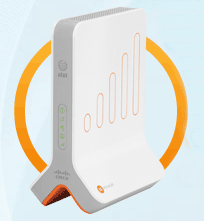AT&T updates Microcell policy: data usage now counts

AT&T's Microcell is slowly rolling out nationwide adding more cities here and there. The microcell itself will run you about $150 and we know that customers can use package minutes with the microcell. AT&T subscribers can also purchase unlimited minutes through the microcell for an additional $20 a month.
We are now finding out that with the recent changes to AT&T's data packages, any data used through the microcell will go against a customer's monthly data package. Back in the good old days when everyone had unlimited data, this never developed into an concern. Now that AT&T has put limits on data packages, it may become one for some.
According to an AT&T spokesperson who spoke with us:
A 3G Microcell functions as a miniature cell tower, and data transmitted using the Microcell uses the core wireless network just like a call placed while driving down the highway uses the core wireless network. The only difference is how that data or call gets there – via a broadband connection versus via a cell tower. As a result data and voice consumed through that access point are billed according to the users’ plan.
While the microcell will double as a data and voice solution it was primarily intended to be a voice solution for those areas with weak coverage. The optimal data solution likely remains to be wi-fi and nowadays is just about standard on all Windows Phones. Using wi-fi for data downloads won't go against your data package. Granted, not everyone has a wireless network in their home and while the microcell can be a dual solution, just remember it's use will go against both your package allotments.
Then again lets be honest, we are now doing some of the work for AT&T by using our own data-for-data, unloading the stress on their towers--seems odd and sneaky to be penalized. On the other hand, AT&T has a leg up on competition as Sprint doesn't even offer 3G coverage via their AirRave. Thoughts?
Get the Windows Central Newsletter
All the latest news, reviews, and guides for Windows and Xbox diehards.

Daniel Rubino is the Editor-in-chief of Windows Central. He is also the head reviewer, podcast co-host, and analyst. He has been covering Microsoft since 2007, when this site was called WMExperts (and later Windows Phone Central). His interests include Windows, laptops, next-gen computing, and watches. He has been reviewing laptops since 2015 and is particularly fond of 2-in-1 convertibles, ARM processors, new form factors, and thin-and-light PCs. Before all this tech stuff, he worked on a Ph.D. in linguistics, watched people sleep (for medical purposes!), and ran the projectors at movie theaters because it was fun.
